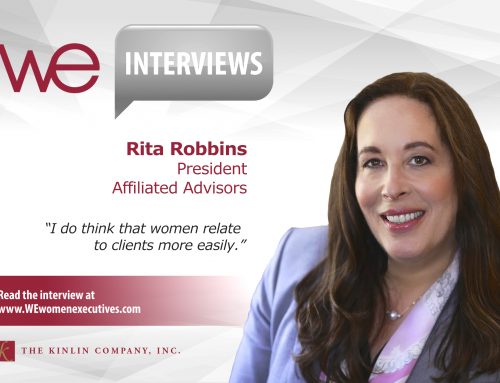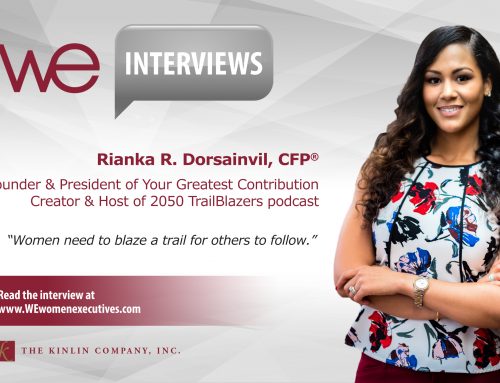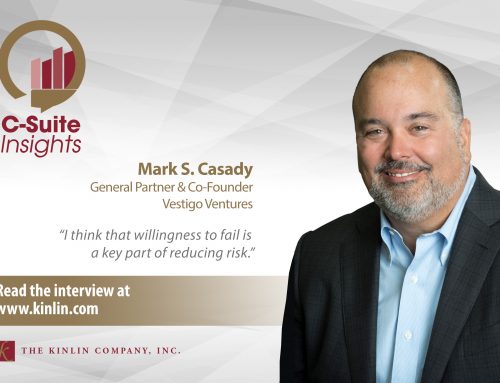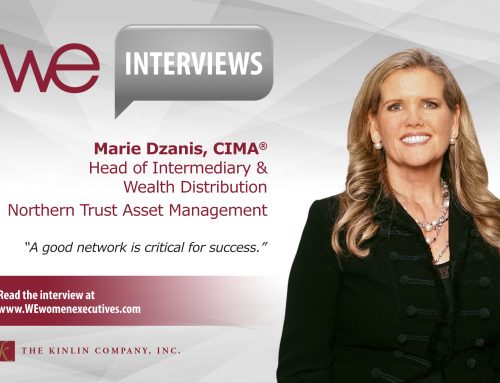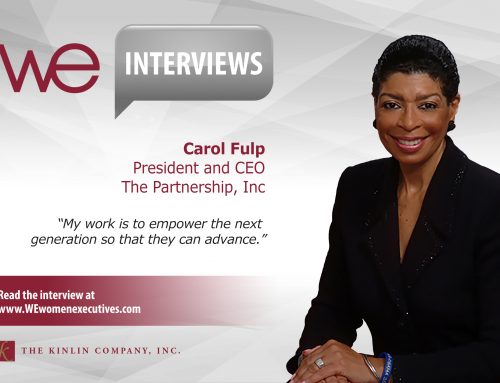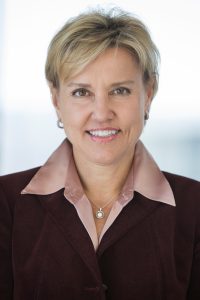 Lynn Blake, CFA
Lynn Blake, CFA
Executive Vice President & CIO
Global Equity Beta Solutions
State Street Global Advisors
As Executive Vice President and Chief Investment Officer of Global Equity Beta Solutions for State Street Global Advisors, Lynn Blake’s list of responsibilities is long and far-reaching. A longtime State Street employee, Blake oversees approximately $1.5 trillion in assets under management, with a team of approximately 75 portfolio managers based in five offices around the world: Boston, London, Hong Kong, Tokyo and Sydney. Her group is responsible for strategies in the equity space, which includes everything that SSgA does in indexing for institutional clients, i.e., commingled funds, collective vehicles, mutual funds, SPDR ETFs, and separate accounts.
Smart-beta assets are a great source of activity and growth for Blake’s group, whose smart-beta strategies include assets that it manages against third-party indexes as well as its own proprietary strategies developed by Jennifer Bender, research head on Lynn’s leadership team. Blake also oversees SSgA’s Corporate Governance team, led by Rakhi Kumar, which is responsible for all of SSgA’s asset stewardship and proxy voting. She reports to SSgA’s Global Chief Investment Officer, Richard Lacaille, who is head quartered in London.
We recently sat down to chat about the evolution of her career, including nearly 30 years with SSgA, and her strategies for success.
Develop your expertise
Delighted to have secured time with Blake, I quickly got the conversation underway. I suspect that, over the course of your career, you’ve oftentimes been the only woman in the room. Can you tell me how you’ve handled the gender disparity and what lessons you’ve learned along the way?
“It’s certainly true that there have been times that I have been the only woman in the room, and it occasionally still happens, but I am happy to say it is less and less frequent. We have improved our overall diversity levels significantly within the company, but we are still not where we want to be.
“I think that gender disparity is more often an issue within portfolio management. When you look at other areas within SSgA, whether it is relationship management, product and marketing or support functions like compliance and legal, they tend to have much better gender balance than the investment team does, and that is something that we are very conscious of and looking to improve.
“Approximately 37 percent of my investment team are women, and that number is reflective of a concerted effort. It is cultural within my team that things like flextime and working remotely are encouraged, which really helps to achieve a better work/life balance. I have been at SSgA for thirty years and during that time I have had two children who are now in college. Back in 1997, when my first daughter was born, having flexibility was critical for me to stay in the work force and in this career. As a new mother, I wanted to be there for my child, but I also wanted to be fully engaged in my career. I wanted to have it all and I think that should be possible! I was fortunate to have a boss who was quite progressive and allowed me to work remotely before anyone was really doing that at State Street. In the late ‘90s, no one in the investment management industry really entertained the idea of working remotely or having flexible work arrangements, but I was given that latitude. It is a big reason I stayed in my job and was able to thrive, so it continues to be an important part of my team’s culture today.
“In terms of my success, I don’t think there is any secret sauce. It comes down to working hard, getting the job done, being highly credible in your role, and staying committed. If you do those things, then being the only woman in the room becomes a non-issue. I have always felt the need to be well prepared and I think that is particularly important early in a career to build credibility and a strong reputation. And, of course, being very responsive is always important, because even though we are managing money, asset management is ultimately a relationship business and we need to keep clients happy.”
Reach out to others
Blake’s mention of supportive bosses provided easy entrée to my next query on the subject of mentoring and sponsoring. Does State Street have a formal mentoring program, I asked. And if so, did you have a mentor, and how was that relationship structured?
“Yes, there is a formal mentoring program at State Street, as well as a very large and active professional women’s network whose mission is to create advancement opportunities for women. One of the more formal mentoring efforts that I am involved with is through “Leading Women,” which was started several years ago by several EVP women, including Hannah Grove whom you also interviewed recently. It was this group of executive women at State Street who took it upon themselves to identify high-potential senior women in the organization that they could mentor and sponsor, with a goal of more deliberate career development and executive promotion. That program has been carried forward so that the SVP women now mentor our VP and managing director-level population. It started five or six years ago, and now goes all the way down the ladder to more junior positions. It has impacted several thousand women across State Street. I have mentored several senior women through “Leading Women” and find it to be such an empowering experience since I end up learning as much as the mentee does! Throughout my career I have had several informal mentoring and sponsorship relationships that have been extremely impactful. Two sponsors in particular – both men incidentally – were very influential in my career trajectory. I do not think I would be where I am today if not for their guidance and support. Don’t underestimate the power of a good sponsor! I think matched mentoring and sponsorship can work, but it can also be very challenging. I have always had relationships that were spontaneous and organic, and for me that’s been more effective, but it can work the other way…I think it just takes a little more work to be honest.”
Stay open to change
Although she may never have been formally mentored, Blake has clearly figured out what it takes to succeed in asset management. To what do you attribute your accomplishments, I queried.
“It started with a lot of luck! When I first joined State Street’s asset management group, it was a small, sleepy little division of a large custody bank. It didn’t look anything like what SSgA does today; there were just a handful of employees with a few billion dollars in assets under management. I came out of school with a business degree, and I was interested in finance and investment management but unsure of the path forward. What intrigued me about State Street, and the reason I joined was the people – they were young, enthusiastic and driven. They believed so deeply in the asset management division’s potential for growth that it was palpable during the interviewing process, so SSgA seemed like a great place to start my career. And because the division was small and still coalescing, I had varied responsibilities in the investment team that were really foundational. It was a tremendous learning experience. I was also fortunate to work with people who were so passionate about their work that I quickly developed that same passion for investing – especially for passive investing. I do believe that, to succeed in asset management as a portfolio manager, you need to have an almost rabid belief in your investment philosophy – and that is how I feel about passive investment management. I love what I do and I believe in what I do! I think we provide an exceptional product and service for our clients and that fills me with a great deal of pride! That is absolutely key to a successful and sustainable career in asset management.”
It sounds as though the company made it easy for you to strike a reasonable work-life balance at a time when nobody was doing that. Do you think that was the firm’s stance or do you attribute that latitude to your manager?
“It was both of those things. State Street was quite progressive in recognizing that the need for flexibility was going to become critical to employees, and that if we really wanted to keep top-performing young women, we needed to give them a better balance between work and home. My manager at the time was so supportive and said, ‘We want Lynn to stay, so we’re going to need to do this.’ I was the first woman – at least that I’m aware of and certainly within SSgA – that was given the ability to work from home.
“Today, I am happy to say that it is now just part of State Street’s DNA to allow employees to have a flexible work schedule, and that is not just for women, but a benefit offered to all employees. For example, we just had a team member take an eight-week paternity leave, which is great for that new dad. But it also reflects the importance of women in the workforce, because if you treat fathers like equal partners in the parenting relationship, then women can be equal partners at work and at home as well.”
Leverage your influence
With respect to the subject of empowering women, I was interested in speaking with Blake about State Street’s recently launched “Fearless Girl” campaign. Tell me about this initiative, I said.
“It’s certainly been one of the most inspiring and energizing events that I have ever been a part of at State Street, with the idea coalescing really quickly. We placed the “Fearless Girl” statue on Wall Street on International Women’s Day in March as a call to action to corporate boards to take intentional steps to increase the number of women on their boards as well as set expectations for senior management to enhance gender diversity within their ranks across the broader organization.
“Most of the assets that we manage at SSgA are indexed assets so we can’t vote with our feet. If we don’t like the way a company is being managed or how it’s performing, we have little recourse to sell. We have to track the index, so we typically have to own those companies. As permanent holders of capital, the only way that we can reflect our views is via active engagement with the boards, the directors and the CEO – and ultimately our vote.
“We know that good corporate governance starts with a strong, effective and independent board and a key contributor is diversity of thought. It can be all kinds of diversity – skills, experience, culture – but we specifically identified gender diversity as critical because there is so much research that shows better gender diversity at the board and leadership levels results in better financial performance and better outcomes for our clients. Yet even now when we look at our portfolio companies, there are hundreds and hundreds of U.S. companies that still have no women on their boards.
“We think that needs to change, so we commissioned the “Fearless Girl” statue to represent women in leadership today and in the future in order to drive greater board diversity. Placing the “Fearless Girl” on International Women’s Day also coincided with the one-year anniversary of our Gender Diversity Index, implemented through the SDPR “SHE” ETF, which we launched in March 2016 after working closely with CalSTRS, a large asset owner that is equally passionate about the benefits of gender diversity. Both of those events came together on March 8th, symbolized by the “Fearless Girl” in front of the Charging Bull on Wall Street, where she is getting a lot of attention.
“The reaction has been amazing. While we had some planned media events, including an exclusive with the Wall Street Journal on International Women’s Day, the image and message of the “Fearless Girl” immediately went viral. The statue was only supposed to be there a week, but because of the enormous and positive response, the City of New York extended the permit through March. A grassroots petition to make her permanent was then started on Change.org and before the end of the month, Mayor Bill de Blasio announced that the statue would remain until February 2018. We had hoped the message would resonate strongly on Wall Street and within the investment industry, but we never expected the world-wide reaction from everyone. There have been literally thousands of articles and broadcast segments on the statue, as well as almost 2 billion impressions on social media. It’s been phenomenal and resulted in spirited conversations on the topic of gender diversity and women as leaders.”
Invest in education
Continuing with the empowerment theme, my next question to Blake concerned her work with The Posse Foundation, a renowned college access and youth leadership development program. Can you tell me about the foundation and your involvement, I inquired.
“It’s an extraordinary organization and its founder and leader, Deborah Bial, is incredible. In my opinion, education is the great equalizer and the only way we can solve the income inequality issue is by educating people beyond high school, which is Posse’s goal. The organization identifies urban students from diverse socioeconomic situations who are unbelievably intelligent and possess great leadership skills but may not have the background or support to succeed in college on their own. Posse collaborates with approximately 50 of the most selective colleges and universities across the country, who award these kids full scholarships. Posse continues to work with the students throughout college and beyond so they can thrive in their academic setting, graduate and have successful careers. Posse’s mission resonated with me because of my concern about income inequality in the United States and also because I was going through the college selection process with my own kids, so I know how difficult it can be. The Foundation works with high school guidance counselors and community organizations to identify students who are deserving and have great potential but might otherwise get overlooked by college admissions. It’s a fabulous organization and I’m proud to be on the board.”
Realize your worth
My final question to Blake was one I always enjoy: Is there any advice you’d like to share with women who are trying to navigate toward success, I asked.
- Stop trying to be perfect. It’s debilitating, because if you insist on being perfect, it means either you’re over prepared or you’re unwilling to take a risk. Try new things and if you fail, you fail. It’s absolutely fine, because it’s a learning experience.
- Realize that women are a hot commodity right now. Everyone is working to increase their gender diversity numbers, and women should take advantage of that. Ask for what you want. If you have credibility and subject matter expertise, you have a lot of leverage right now. Use it—men would.


